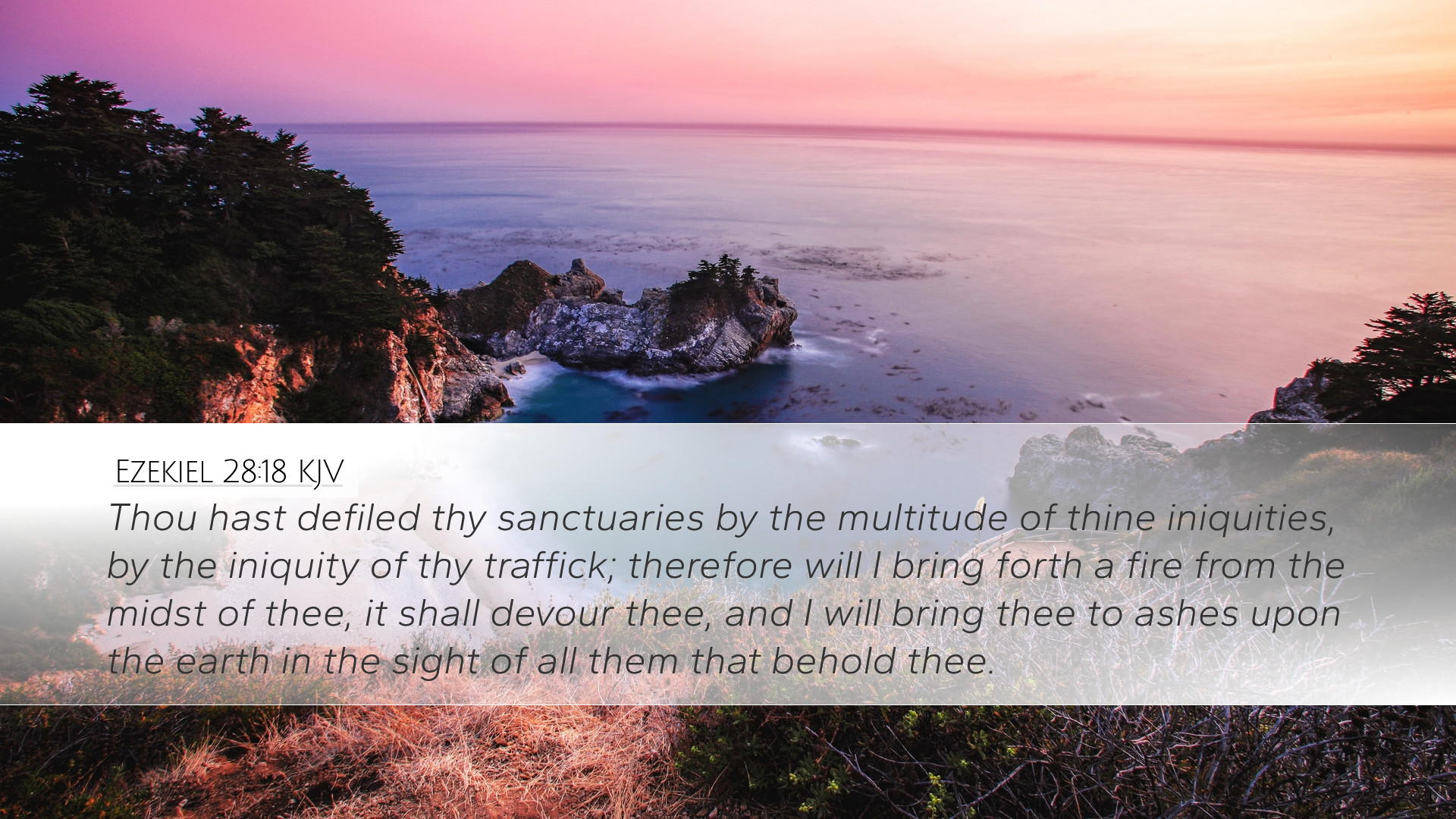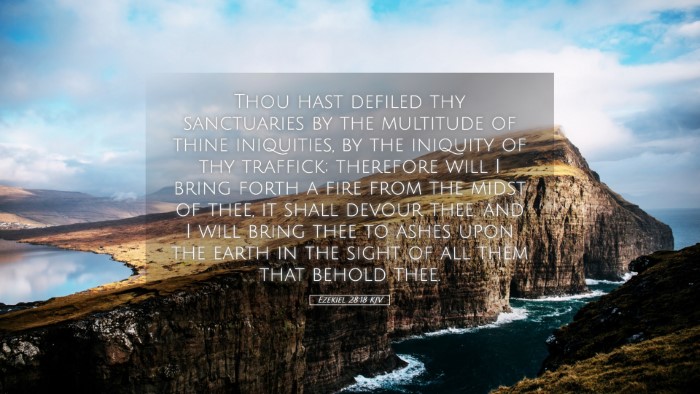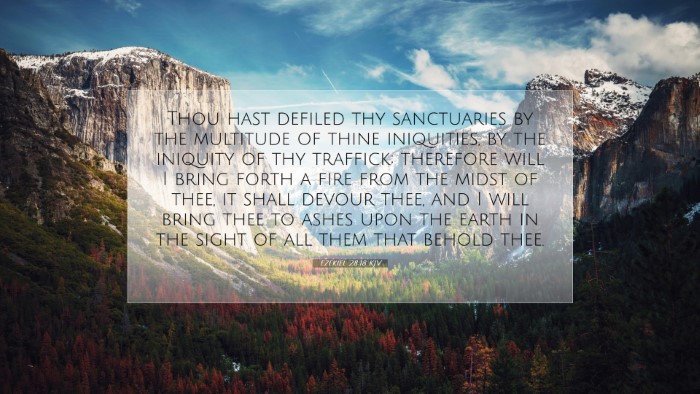Ezekiel 28:18 - Commentary Overview
Ezekiel 28:18 presents a profound assessment of the fall of Tyre and an allegorical implication representing the pride and eventual judgment of the king of Tyre. The verse reads:
"By the multitude of thy merchandise they have filled the midst of thee with violence, and thou hast sinned: therefore I will cast thee as profane out of the mountain of God: and I will destroy thee, O covering cherub, from the midst of the stones of fire."
Context and Historical Background
The prophecy of Ezekiel against Tyre reflects both a historical and a theological context. Tyre was a significant Phoenician city, known for its wealth and influence in trade. The king of Tyre is portrayed in Ezekiel as both a powerful figure and a symbol of pride.
Insights from Public Domain Commentaries
Matthew Henry's Commentary
Matthew Henry emphasizes the spiritual implications of the verse. He notes that the king of Tyre, once exalted, fell due to his pride and moral corruption. Henry points out that the phrase "By the multitude of thy merchandise" highlights how prosperity can lead to temptation and moral failings. The king's reliance on wealth and power, rather than on God, ultimately resulted in his decline.
Henry describes the king's position, referencing the "mountain of God," which symbolizes a place of divine favor and holiness. However, due to sin, the king was cast down, illustrating a core Biblical principle: pride goes before a fall (Proverbs 16:18).
Albert Barnes' Notes
Albert Barnes expounds that the "violence" mentioned indicates not only physical acts but also moral corruption integral to Tyre’s opulence. He argues that this reflects a broader theological truth that God judges nations and individuals based on their actions—especially when they stray from righteous paths.
Barnes highlights the term "covering cherub," interpreting it as a reference to the high esteem and protected status the king once enjoyed. He interprets the fall of the king of Tyre as a manifestation of divine judgment against those who presume upon God’s grace and mistakenly believe they can operate outside of His moral framework.
Adam Clarke's Commentary
Adam Clarke strategically analyzes the symbolic language in this verse, proposing that “the stones of fire” represents purity and divine presence. Clarke suggests that the imagery evokes the idea of a heavenly setting from which the once exalted king was expelled due to his sinfulness.
Clarke also reflects on the implications of the king's fall. He argues that the commentary serves as a warning against moral decay in positions of power, asserting that even those who reach great heights, both politically and spiritually, are not immune to divine retribution if they forsake righteousness.
Theological Implications
This verse offers rich theological implications for understanding divine justice, the nature of sin, and the danger of pride. It serves to remind readers that spiritual authority is not exempt from accountability. Believers, scholars, and theologians can derive several key lessons:
- The Sovereignty of God: The destruction of the king of Tyre illustrates God's ultimate authority over earthly powers.
- The Danger of Pride: The text serves as a reminder that pride can lead to a fall, emphasizing humility as a virtue necessary for true leadership.
- Judgment Against Corruption: God's judgment is often an outcome of moral and ethical corruption, especially among leaders who are expected to uphold justice.
Practical Applications
For pastors and church leaders, Ezekiel 28:18 poses significant questions for self-examination regarding leadership ethics and accountability. In practical terms, this passage serves as a guide to:
- Contemplate the sources of personal and communal pride and engage in practices that foster humility.
- Encourage transparency and accountability within church leadership, ensuring that the moral integrity of leaders is a priority.
- Educate congregations on the implications of wealth and power, fostering an understanding that these are tools for service rather than means for domination.
Conclusion
Ezekiel 28:18, through its rich metaphor and historical context, provides a profound lesson on the nature of power, pride, and the consequences of sin. By synthesizing insights from Matthew Henry, Albert Barnes, and Adam Clarke, we understand that scripture remains relevant, offering wisdom applicable to both ancient and contemporary situations. This verse invites reflection on personal conduct, leadership, and the role of divine justice in the world.


